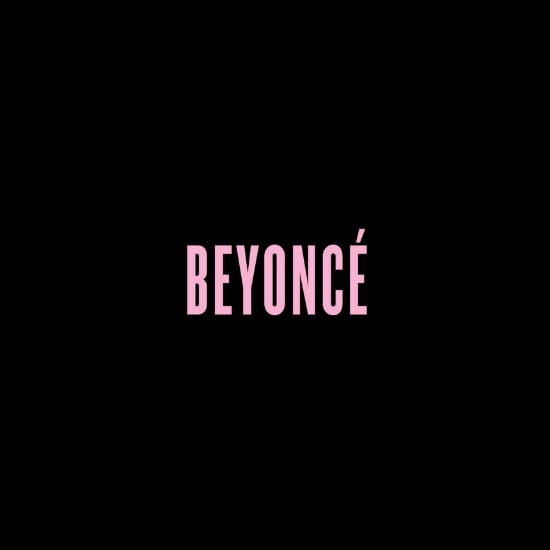Wow, this is a surprise, right? When I started trying to write about this album, I was reminded of a scene from the show Louie in which David Lynch feeds Louie jokes about Nixon and Reagan. Louie asks for more contemporary jokes, to which Lynch responds “you’re not ready”. I see now what he meant. BEYONCÉ is hard to review for a lot of reasons. For one, the album is completely shocking. It’s frequently experimental and downright weird. The album also operates on a visual level, containing a video for each track and giving an entire new dimension to explore. Another barrier of entry is likely my gender. I identify as genderqueer, but that position doesn’t mean I understand what it is to be a woman and so much of this record is concerned with exactly that.
Bey has been a feminist icon for quite some time, but this is the first album of hers (or any mainstream pop artist, for that matter) to lay out the ideological concerns so explicitly. On “Flawless”, for instance, she dedicates a third of its running time to playing back part of a lecture by Chimamanda Ngozi Adiche describing the ways that women are taught culturally to be subservient to men, ending with a definition of the word “feminist” (“a person who believes in the social, political, and economic equality of the sexes”). The speech divides the song in two halves. The first half, familiar to listeners as a track called “Bow Down” that dropped earlier this year, is Beyoncé asserting her position as Queen. The latter is a royal decree of empowerment, commanding her subjects to express the utmost confidence and self-assurance towards their physical appearance (“Tell ’em/I woke up like this!”). I was lucky enough to see the Queen perform this summer at the Made In America Festival, and she made a point to mention that her band “just happen[ed]” to be all girls. Beyoncé is making no attempts to mask her ideological conceit, something that I think is really cool.
Beyoncé has said that her goal on this album is to find the beauty in imperfection. There are a lot of ways to read that in the albums lyrical content, but my position of privilege probably makes it more than a bit problematic to continue analyzing it that way. Musically, this album is very imperfect in an amazing way. Pop songs are expected to follow a specific structure, but that ABABCB deal is largely absent. Some songs go by without any phrases being repeated at all, others extend these expected forms to great lengths. Musical beauty is subjective and Beyoncé is challenging listeners by moving outside of radio-defined structural perfection.
When she does lay down a straight pop song, wow. “XO” is my pick for the centerpiece of the album. Cowritten by pop juggernauts The-Dream and Ryan Tedder, the music sounds like a night sky filled with constellations and galaxies shining brilliantly. The chord progression is the same as “Wake Up” by Arcade Fire and has the same impossibly anthemic vibe. The first thing I asked myself when I decided to review this album was if I needed to watch the videos along with it, and I’m glad that I did. “XO” is set in an amusement park replete with flashing lights and dancing children and roller coasters and fireworks. This song is what joy feels like.
There are tracks on this album that flounder, that feel a bit like filler. “Mine” is a collaboration with Drake and producer Noah “40” Shebib, but Beyonce doesn’t really fit into their world and the result is just sort of awkward. “Rocket” is sexy as hell, but it’s so indebted to D’Angelo’s “Untitled (How Does it Feel)” that it’s ultimately redundant. BEYONCÉ, though, succeeds in its experiments much more often than it fails. “Ghost” and “Yonce” feature Beyoncé straight up rapping and sounding waaaay better than her husband Jay-Z does on “Drunk in Love”. “Blow” is a disco throwback ode to cunnilingus that can sit comfortably beside contemporaries like Blood Orange and Daft Punk. The album ends with a sweet song about and featuring her daughter Blue Ivy Carter. In the final moments of BEYONCÉ, fellow feminists Sleater-Kinney’s song “Let’s Call It Love/Night Light” comes to mind. Like this album, that track presents the two sides of being a grown woman: the sexual and the familial. Beyoncé is a grown woman who can do what she wants and that’s exactly what she did here.


Album Review: Beyoncé – Self Titled (2013) http://t.co/Q8GsNp0Nad via @Blastmagazine
I’m so stoked run this piece!
@davidegreenwald hey, you’re a writer and so am I and you talked to me once. I published an article. read it? http://t.co/YqvQwg15xt
#shamelessselfpromotion http://t.co/YqvQwg15xt
http://jezebel.com/48-looks-from-beyonces-17-new-music-videos-1482953649 i like this article
Lovely review. Also, nice Tony’s Theme reference 😀